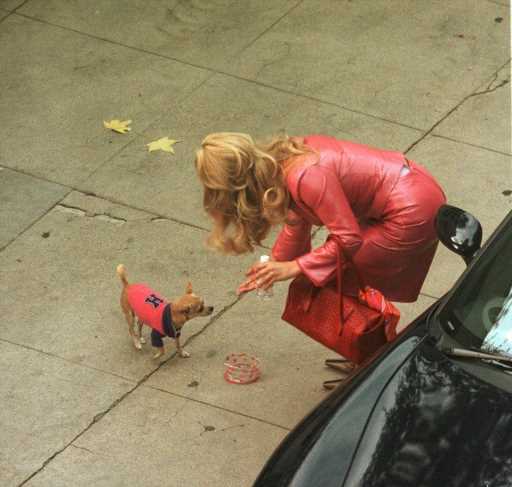In what has been praised as an iconic feminist success, Legally Blonde premiered in 2001 and set the stage for other smart comedies. With Reese Witherspoon at the helm as the protagonist Elle Woods, Legally Blonde challenged notions about femininity and showed that just because a woman is obsessed with fashion and celebrity culture doesn’t mean she can’t be brilliant and caring.
In addition to giving a huge boost to Witherspoon’s career, the film also garnered something of a cult following and has remained an oft-quoted staple in pop culture. While there’s a lot that people love about the film, there’s one place where it definitely falls flat: portraying law school in a realistic light. The movie gets several things wrong about the real-life task of attending law school.
‘Legally Blonde’ is centered around Harvard Law
The plot of the movie revolves around higher education and the specific setting of Harvard Law. Elle Woods, a privileged and somewhat aloof beauty who has never had to think much about her future, assumes that her long-term boyfriend will be proposing so she can float off into a life of luxurious ease.
When he instead dumps her and announces his plans to attend Harvard Law School without her, she decides to get in and win him back. With an unusual (and perfumed) cover letter and a video application that focuses on her social life, Elle lands a coveted spot in the prestigious school.
The rest of the story unfolds as Elle discovers she really is quite capable and intelligent, and by the time that her beau wants her back, she’s moved on without him. Throughout the film, the backdrop of Harvard Law looms large since it’s the setting where Elle takes classes, lands an internship, falls in love, and finds herself.
Elle would not have had the freedom she did in ‘Legally Blonde’
While the film does accurately capture some challenges of law school, there are plenty of details that took creative license in order to further the plot. As Insider explains, several of the inaccuracies revolve around how much freedom Elle was given to interact with the legal system.
It is unlikely that a first-year law student would even be in such an internship in the first place, but even so, an inexperienced intern would never be allowed to question a witness on the stand. A more realistic scene would have had Elle drafting memos rather than standing in center stage on the courtroom floor.
Another courtroom inaccuracy would certainly have changed the movie if it had been made more realistic. Elle manages to get a shocking confession out of a witness that changes everything about the case, but in real life, these kinds of reveals happen during the discovery stage of the legal process — not in the courtroom.
Harvard Law’s culture was not accurately portrayed in ‘Legally Blonde’
While the courtroom drama may be forgiven for aiding the movie in its cinematic goals, others have taken issue with the portrayal of Harvard Law — and indeed law school in general — as a whole. First of all, Elle’s unconventional application was explained away by an admissions’ committee looking flabbergasted but announcing they wanted more diverse backgrounds in their applicant pool.
The real-life admission process isn’t based on flashy videos, and applicants have just two pages of personal statements to make their case. Once Elle got to law school, there were more inaccuracies. For one thing, the competitive nature of the law school class has some roots in reality, but the real-life version is balanced out with some collaborative aspects as well.
Finally, Elle is never seen taking her first-year exams. The idea seems to be that she did so well in her impressive internship performance that she immediately moves on in her studies. In real life, however, end-of-year exams are a make-or-break moment for many law students, and first-year exams are notoriously tough.
Source: Read Full Article

